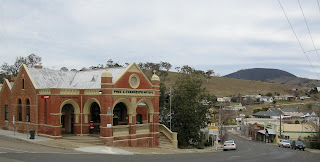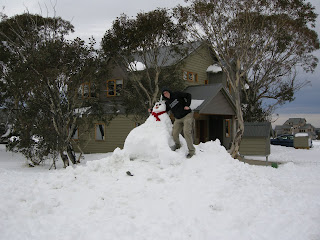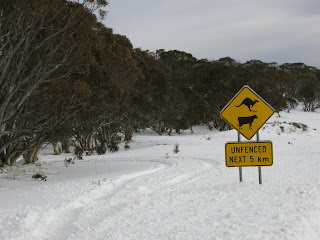One the 1st day of Christmas, my true love gave to me...
an emu up a gum tree
One the 1st day of Christmas, my true love gave to me...
two flying doctors
One the 1st day of Christmas, my true love gave to me...
three kelpie dogs
One the 1st day of Christmas, my true love gave to me...
four kookaburras
One the 1st day of Christmas, my true love gave to me...
five kangaroos
One the 1st day of Christmas, my true love gave to me...
six chooks-a-laying
One the 1st day of Christmas, my true love gave to me...
seven possums playing
One the 1st day of Christmas, my true love gave to me...
eight dingos dancing
One the 1st day of Christmas, my true love gave to me...
nine puddings baking
One the 1st day of Christmas, my true love gave to me...
ten wheat trucks carting
One the 1st day of Christmas, my true love gave to me...
eleven magpies singing
One the 1st day of Christmas, my true love gave to me...
twelve teapots pouring
One the 1st day of Christmas, my true love gave to me...
two flying doctors
One the 1st day of Christmas, my true love gave to me...
three kelpie dogs
One the 1st day of Christmas, my true love gave to me...
four kookaburras
One the 1st day of Christmas, my true love gave to me...
five kangaroos
One the 1st day of Christmas, my true love gave to me...
six chooks-a-laying
One the 1st day of Christmas, my true love gave to me...
seven possums playing
One the 1st day of Christmas, my true love gave to me...
eight dingos dancing
One the 1st day of Christmas, my true love gave to me...
nine puddings baking
One the 1st day of Christmas, my true love gave to me...
ten wheat trucks carting
One the 1st day of Christmas, my true love gave to me...
eleven magpies singing
One the 1st day of Christmas, my true love gave to me...
twelve teapots pouring
12 days of Christmas, and 5 weeks on the road! See you soon back in the cold country!
Jessie & Steve
Jessie & Steve














































